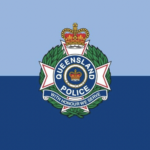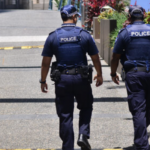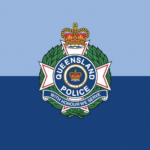Queensland Police Officer Suspended Over Allegations of Assaulting Youth

A Queensland Police officer has been suspended on full pay and is being investigated by the QPS Ethical Standards Command after video footage surfaced of him headbutting a 14-year old Indigenous boy.
The officer was off-duty at the time and the incident allegedly took place in a McDonald’s restaurant car park in the town of Dalby, north west of Brisbane, in the early hours of Sunday morning.
The incident apparently started when a group of teens began calling out to the officer.
One reportedly yelled words to the effect of “you’re nothing without the badge”.
The teenager goads the officer, saying “Punch me, punch me. You’re a pig.”
The off-duty officer responds, saying:” You’ve got three seconds to walk away or I head-butt you.” Moments later the officer pushes his chest into the teens chest before striking a blow with his forehead.
The scuffle continued until on-duty officers appeared on the scene and physically restrained their colleague. The footage was taken by one of the youths.
Commissioner Carroll calls the conduct ‘inappropriate’
Queensland Police Commissioner Katarina Carroll said she had “not seen what happened prior” to the video, “But, from what I have seen, those actions are completely inappropriate.”
The video – which has been played on a few of the mainstream news channels, is sickening to watch.
And although much can and might be said about the teens’ attitude and behaviour, from what can be seen in the video footage, the officer was clearly not under physical threat – the teens’ taunts were verbal. It certainly appears that the officer faced a moment when there were two clear choices available to him – to walk away, or to get involved. He chose the latter.
Of course, the issue of racism is front and centre – and it is definitely an issue that needs to be considered carefully within the context of the video footage. The boy who was struck by the officer has admitted that he was provocative, but says he also believes he was targeted “because of the colour of his skin.”
The Ethical Standards Command will be ultimately responsible for determining what happened, why and what (if any) appropriate disciplinary action will be taken against the officer involved.
The use of excessive force amounts to assault
In jurisdictions across Australia, including in Queensland and here in New South Wales, the use of force above that which is reasonable in the circumstances is legally considered to amount to the offence of assault.
However, it is extremely rare for police officers who assault members of the public to be terminated from their positions following an internal investigation, or even an investigation by state or territory watchdogs – such as the Law Enforcement Conduct Commission in NSW or the Crime and Corruption Commission in Queensland (who do not have the power to discipline officers, and can only make recommendations) – let alone to be criminally prosecuted for assault, even in situations where video footage clearly captures an assault taking place.
The youth crime problem
The incident involving the 14-year old highlights the problem we have in this country with bored youths out at night stirring up trouble. For months there have been reports about youth crime sprees in Queensland which begs questions such as – why don’t these kids have somewhere to go? Something to do? And where are their parents and / or guardians?
Even us ‘ordinary people’ can probably answer those questions, so, if youth crime is at an all-time high in Queensland, why aren’t we doing more to prevent it?
We need a different approach
In February, the Queensland Government sent out a press release crowing about its new initiatives – a range of reforms designed specifically to tackle youth crime and “keep communities safer”. The language alone is divisive by any measure. But the plan includes massive multi-million dollar investments in the response to youth offenders, including introducing tough new bail laws, and beefing up its hardline punitive approach, but very little in the way of ideas, strategies, and funds allocated to keeping these young people away from opportunities for getting into trouble to begin with.
We can go over all the psychology and revisit the science which says that teens tend to behave in ways that are impulsive, irrational, or dangerous but until we actually begin to work with teens and find new and different solutions – ways to truly divert them from the justice system altogether, well before they come into contact with it – we’re going to just perpetuate the problem which is also heightened for indigenous teens who are more vulnerable, and exacerbated to a degree by the growing divide and mistrust between police officers and the communities they serve.







